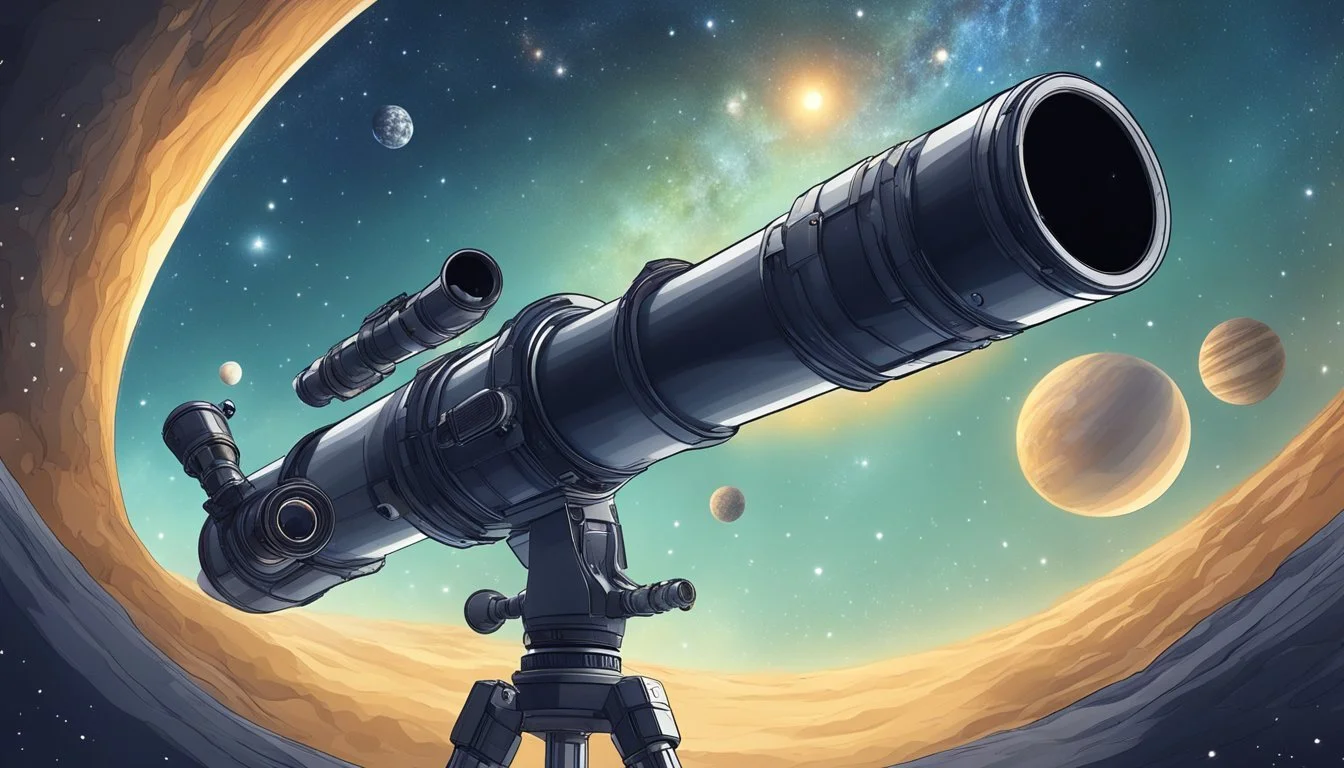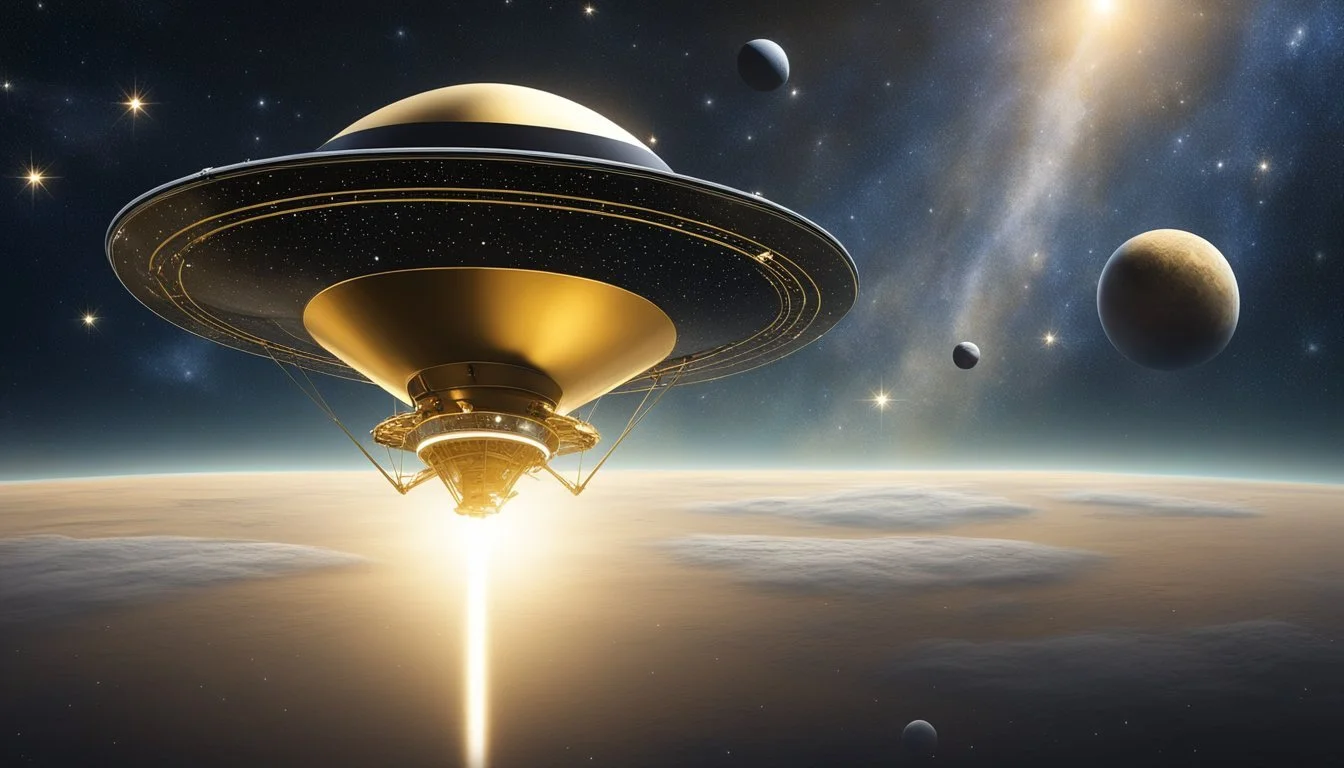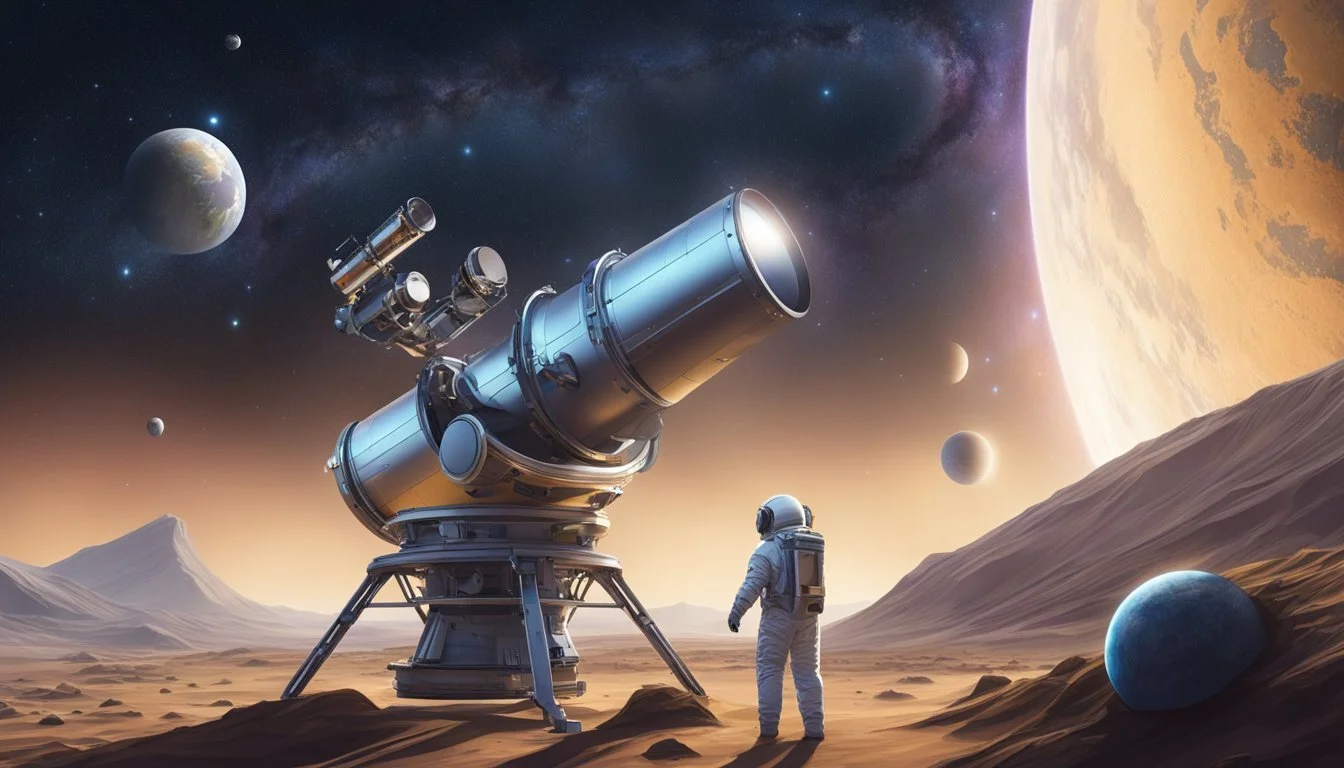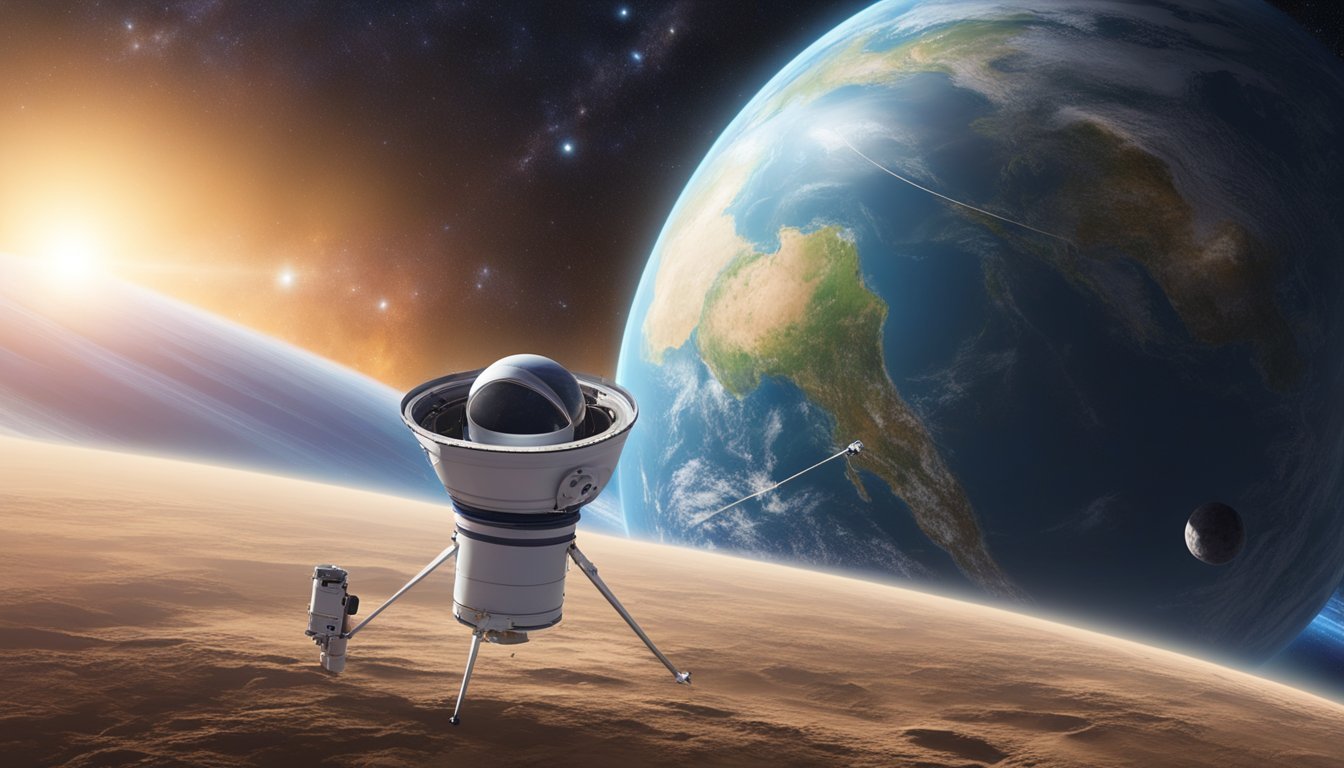9 Documentaries About Scientific Discoveries Made in Space
Unveiling Cosmic Breakthroughs
Space exploration has yielded numerous scientific breakthroughs and discoveries that have expanded our understanding of the universe. Documentaries about these advancements offer viewers a window into the cutting-edge research and technological innovations happening beyond Earth's atmosphere. These films combine stunning visuals with expert insights to bring complex scientific concepts to life.
Watching space documentaries allows audiences to experience the thrill of discovery and learn about the latest findings in astronomy, astrophysics, and space science. From uncovering the mysteries of distant planets to revealing new details about our own solar system, these documentaries showcase the remarkable achievements of scientists and astronauts working at the forefront of space exploration. They provide an accessible way for viewers to stay informed about ongoing space missions and their potential impacts on our knowledge of the cosmos.
1) Apollo 11: First Steps Edition
Apollo 11: First Steps Edition is a captivating documentary that showcases the historic moon landing mission. Created exclusively for IMAX and giant screen theaters, this film offers a unique cinematic experience.
The documentary features never-before-seen 70mm footage from the Apollo 11 mission. It provides viewers with an immersive look at the real-life moments of humanity's first steps on the lunar surface.
Directed by Todd Douglas Miller, this special edition was released to commemorate the 50th anniversary of NASA's celebrated Apollo 11 mission. The film presents a thrilling account of one of the most significant scientific achievements in space exploration.
Apollo 11: First Steps Edition brings the excitement and tension of the mission to life. It allows audiences to witness the preparation, launch, lunar landing, and return of the astronauts in stunning detail.
This documentary offers a unique perspective on the groundbreaking scientific and technological advancements that made the moon landing possible. It serves as both an educational tool and an inspirational tribute to human ingenuity and exploration.
https://en.wikipedia.org/wiki/Apollo_11_(2019_film)
2) Hubble's Cosmic Journey
Hubble's Cosmic Journey is a documentary that celebrates the 25th anniversary of the Hubble Space Telescope. Narrated by renowned astrophysicist Neil deGrasse Tyson, this film explores the telescope's remarkable history and scientific impact.
The documentary chronicles Hubble's journey from its launch in 1990 to its most significant discoveries. It showcases the telescope's ability to capture unprecedented views of distant cosmic wonders, revolutionizing our understanding of the universe.
Viewers are treated to a spectacular montage of Hubble's most important observations. The film highlights how this orbiting observatory has transformed space exploration and expanded human knowledge of the cosmos.
Hubble's Cosmic Journey also delves into the technical challenges faced during the telescope's launch and subsequent missions. It demonstrates the ingenuity and perseverance of scientists and engineers in overcoming obstacles to achieve groundbreaking results.
This documentary serves as a testament to human curiosity and our quest to explore the unknown. It illustrates how tools like the Hubble Space Telescope have become instrumental in unraveling the mysteries of the universe.
[https://www.imdb.com/title/tt4634444/]
3) The Mars Generation
The Mars Generation is a 2017 documentary that explores humanity's future journey to the Red Planet. It focuses on aspiring teenage astronauts attending Space Camp, showcasing their passion and dedication to space exploration.
The film features interviews with prominent figures in the scientific community, including Neil deGrasse Tyson, Bill Nye, and Michio Kaku. These experts share their insights on NASA's history and the potential for future Mars missions.
The documentary highlights the challenges and opportunities associated with sending humans to Mars. It emphasizes the importance of inspiring the next generation of scientists and engineers to pursue careers in space exploration.
The Mars Generation offers a hopeful perspective on the future of space travel. It presents the idea that today's teenagers could be among the first humans to set foot on Mars within the next few decades.
https://en.wikipedia.org/wiki/The_Mars_Generation_(film)
4) Chasing Pluto
"Chasing Pluto" is a documentary that chronicles the New Horizons spacecraft's historic mission to Pluto. The film, produced by PBS' NOVA science series, offers viewers an in-depth look at the spacecraft's nine-year journey across three billion miles.
The documentary captures the excitement and anticipation surrounding the July 2015 flyby of Pluto. It provides behind-the-scenes access to the mission, showcasing the dedication of the scientists and engineers involved in this groundbreaking endeavor.
"Chasing Pluto" reveals the first detailed images of Pluto and its moons, including the largest moon, Charon. These images have revolutionized our understanding of this distant, icy world at the edge of our solar system.
The film not only focuses on the scientific aspects of the mission but also explores the cultural significance of Pluto. It delves into the public's fascination with the former ninth planet and its impact on popular culture.
Through interviews with key team members and stunning visualizations, "Chasing Pluto" brings the New Horizons mission to life. It celebrates this remarkable achievement in space exploration and the new discoveries it has brought to light.
https://www.pbs.org/wgbh/nova/pluto/
5) The Farthest: Voyager in Space
The Farthest: Voyager in Space chronicles NASA's ambitious Voyager mission, which launched twin spacecraft in 1977. These probes revolutionized our understanding of the outer solar system and its planets.
Voyager 1 and 2 visited Jupiter, Saturn, Uranus, and Neptune, capturing stunning images and data about these gas giants and their moons. The documentary highlights the groundbreaking discoveries made during these planetary encounters.
In 2012, Voyager 1 became the first human-made object to enter interstellar space, marking a historic milestone for space exploration. The film showcases this achievement and its significance for humanity's reach beyond our solar system.
The documentary features interviews with scientists and engineers involved in the Voyager program. It explores the challenges they faced and the innovative solutions they developed to keep the spacecraft functioning for decades.
The Farthest also examines the cultural impact of the Voyager mission, including the famous Golden Records carried by both probes. These discs contain sounds and images representing Earth, intended as a message for potential extraterrestrial civilizations.
[https://en.wikipedia.org/wiki/The_Farthest]
6) The Universe: Season 1
"The Universe" is a documentary series that explores the wonders of space and astronomy. Season 1, which premiered in 2007, covers a wide range of cosmic topics.
The first episode, "Secrets of the Sun," delves into our nearest star and its impact on Earth. Subsequent episodes explore planets, moons, and other celestial bodies in our solar system.
The series uses cutting-edge CGI to visualize complex astronomical concepts. It features interviews with leading scientists and experts in the field of astrophysics.
"The Universe" Season 1 examines both well-known and lesser-known space phenomena. Episodes cover topics like black holes, supernovas, and the search for extraterrestrial life.
The show aims to make complex scientific concepts accessible to a general audience. It combines historical context with current research to provide a comprehensive view of our cosmos.
[https://en.wikipedia.org/wiki/The_Universe_(TV_series)]
7) Beyond the Horizon
"Beyond the Horizon" takes viewers on a journey to the outer reaches of our solar system. This documentary explores the groundbreaking discoveries made by space probes and telescopes in the farthest regions of our cosmic neighborhood.
The film highlights the New Horizons mission and its historic flyby of Pluto in 2015. It showcases the stunning images and data collected, revealing Pluto's unexpected geological complexity and atmospheric features.
"Beyond the Horizon" also delves into the exploration of the Kuiper Belt, a vast region of icy bodies beyond Neptune's orbit. The documentary examines how these distant objects provide crucial insights into the early formation of our solar system.
Viewers learn about the challenges of deep space exploration and the innovative technologies developed to overcome them. The film emphasizes the importance of these missions in expanding our understanding of the universe.
"Beyond the Horizon" combines captivating visuals with expert interviews, offering a comprehensive look at the cutting-edge science behind our exploration of the solar system's frontier.
https://en.wikipedia.org/wiki/New_Horizons
8) Cosmic Voyage
Cosmic Voyage takes viewers on an awe-inspiring journey through the vastness of space. Released in 1996, this IMAX documentary explores the scale of the universe from the smallest subatomic particles to the largest cosmic structures.
Narrated by Morgan Freeman, the film uses stunning visual effects to illustrate scientific concepts. It showcases the relative sizes of objects in the universe, from atoms to galaxies, using powers of ten.
The documentary highlights groundbreaking discoveries made by space telescopes and probes. It examines the formation of stars, planets, and galaxies, offering insights into the origins of our cosmic neighborhood.
Cosmic Voyage brings complex astronomical ideas to life through its captivating imagery. The film's blend of science and spectacle makes it accessible to audiences of all ages and backgrounds.
By presenting the universe's immense scale, the documentary puts Earth's place in the cosmos into perspective. It encourages viewers to contemplate humanity's role in the grand scheme of the universe.
9) Particle Fever
Particle Fever documents the groundbreaking experiments conducted at the Large Hadron Collider (LHC) near Geneva, Switzerland. The film follows both experimental and theoretical physicists as they work on the world's largest and most powerful particle accelerator.
The documentary captures the excitement and tension leading up to the LHC's first successful run in 2012. It showcases the collaborative efforts of thousands of scientists from around the globe, united in their quest to unlock the mysteries of the universe.
Particle Fever highlights the search for the elusive Higgs boson, a fundamental particle that gives mass to other particles. The film explains complex scientific concepts in an accessible manner, making it engaging for both science enthusiasts and general audiences.
Director Mark Levinson skillfully weaves together the personal stories of six scientists with the broader narrative of this monumental scientific endeavor. The film captures the human side of scientific discovery, showcasing the dedication, passion, and occasional setbacks experienced by the researchers.
The Impact of Space Discoveries on Modern Science
Space exploration has transformed our scientific understanding and technological capabilities. Discoveries made beyond Earth's atmosphere have reshaped fundamental theories and opened up new avenues of research across multiple disciplines.
Revolutionizing Our Understanding of Physics
Space-based experiments have challenged and refined our grasp of physics. Microgravity environments on the International Space Station allow scientists to conduct unique tests impossible on Earth. These experiments have led to breakthroughs in fluid dynamics, material sciences, and quantum mechanics.
The study of black holes and gravitational waves has provided crucial evidence supporting Einstein's theory of general relativity. Spacecraft like LISA Pathfinder have demonstrated the feasibility of detecting gravitational waves from space, opening up a new field of gravitational wave astronomy.
Space-based particle physics experiments, such as the Alpha Magnetic Spectrometer on the ISS, search for dark matter and antimatter. These studies push the boundaries of our understanding of fundamental particles and forces.
Contributions to Astronomy
Space telescopes have revolutionized our view of the cosmos. The Hubble Space Telescope has been instrumental in determining the age of the universe, studying exoplanets, and observing distant galaxies. Its images have expanded our understanding of cosmic evolution and star formation.
Missions like Kepler and TESS have discovered thousands of exoplanets, transforming our knowledge of planetary systems. These findings have implications for the search for extraterrestrial life and our understanding of planetary formation.
X-ray and gamma-ray observatories in space have revealed violent cosmic events like supernovae and gamma-ray bursts. These observations provide insights into the life cycles of stars and the most energetic phenomena in the universe.
Technological Advancements Driven by Space Exploration
Space exploration has spurred numerous technological breakthroughs that benefit life on Earth. These innovations span spacecraft design, data collection methods, and analytical tools.
Innovations in Spacecraft Technology
Spacecraft technology has evolved rapidly due to the demands of space missions. Lightweight, durable materials developed for spacecraft now find applications in everyday products. For example, memory foam, originally created for NASA aircraft seats, is now used in mattresses and pillows.
Miniaturization techniques pioneered for space missions have led to smaller, more powerful electronics. This has enabled the creation of compact smartphones and medical devices.
Solar panels, refined for use in space, have become more efficient and affordable for terrestrial use. This has accelerated the adoption of renewable energy sources globally.
Improvements in Data Collection and Analysis
Space exploration has revolutionized data collection and analysis methods. Remote sensing technologies, developed to study distant planets, now monitor Earth's climate and natural resources.
Advanced image processing techniques, initially used to enhance space telescope images, have improved medical imaging technologies like MRI and CT scans.
Machine learning algorithms, refined to analyze vast amounts of space data, now power recommendation systems and fraud detection in various industries.
GPS technology, originally developed for military and space applications, has become ubiquitous in navigation and location-based services.






